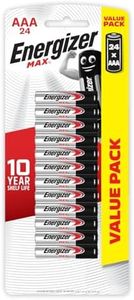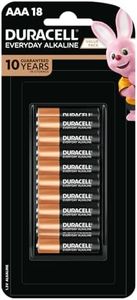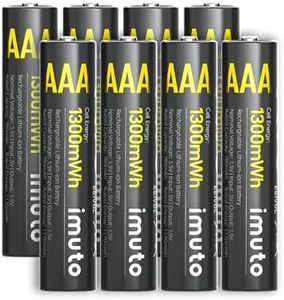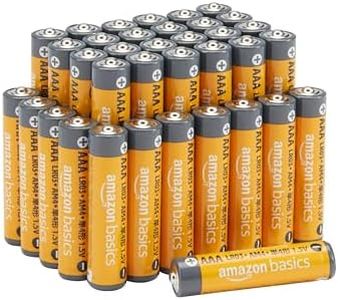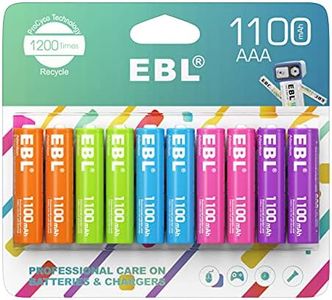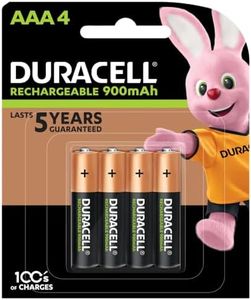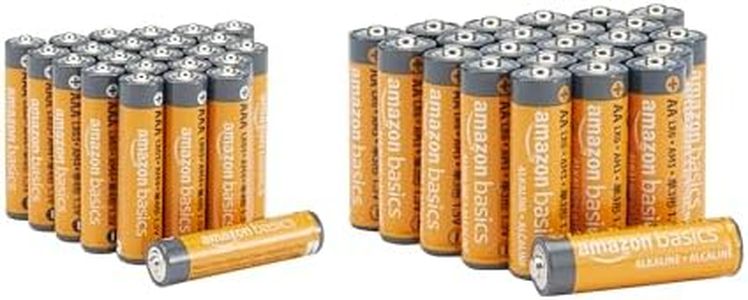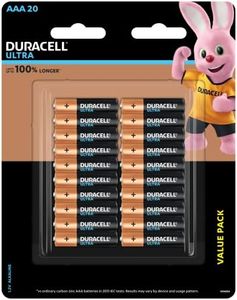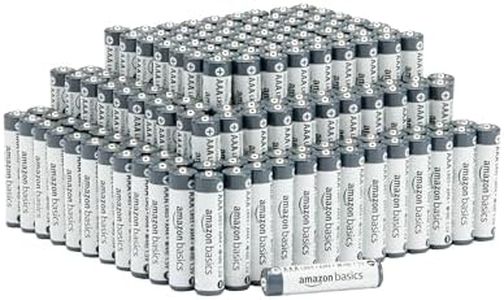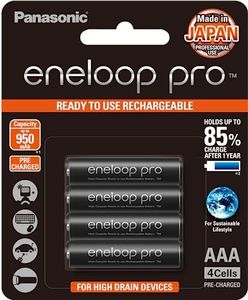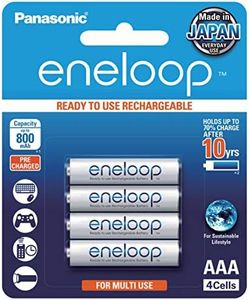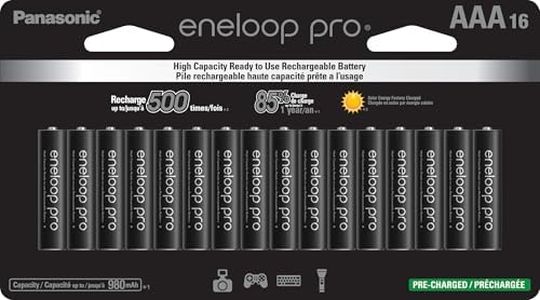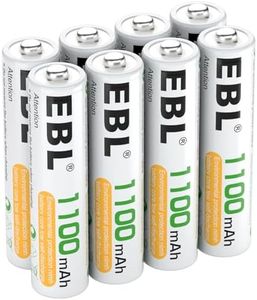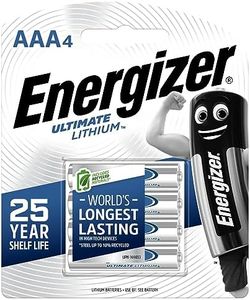We Use CookiesWe use cookies to enhance the security, performance,
functionality and for analytical and promotional activities. By continuing to browse this site you
are agreeing to our privacy policy
10 Best Long Lasting Aaa Batteries
From leading brands and best sellers available on the web.By clicking on a link to a third party's website, log data is shared with that third party.
Buying Guide for the Best Long Lasting Aaa Batteries
Choosing long-lasting AAA batteries may seem like a simple task, but understanding what makes a battery last longer for your specific devices can help you make a smarter purchase. To find the best option, you’ll want to pay attention to key specs that determine how much power the battery stores, how well it performs over time, and whether it meets your device’s requirements. Matching battery types to the devices you use—whether it's TV remotes, cameras, or toys—ensures you won’t run out of power when you need it most.Battery ChemistryBattery chemistry refers to what's inside the battery that creates power. The most common AAA batteries are alkaline, lithium, and rechargeable nickel-metal hydride (NiMH). Alkaline batteries are widely available, affordable, and work well for low to moderate drain devices like remote controls. Lithium batteries last longer and perform better at extreme temperatures, making them a favorite for high-drain electronics or outdoor use. Rechargeable NiMH batteries can be reused hundreds of times, which makes them cost-effective and environmentally friendly, especially for things you use daily. To choose, consider your device’s power needs—go for lithium or NiMH for high-drain gadgets, and alkaline for everyday low-power items.
Capacity (mAh - milliampere hours)Capacity, measured in milliampere hours (mAh), tells you how much energy a battery can store. Higher numbers mean the battery will last longer between changes. Most AAA batteries range from around 800 mAh (alkaline) to 1200 mAh (high-end lithium or some NiMH). For devices that use a lot of power constantly, like wireless gaming controllers or cameras, higher-capacity batteries are better. For things that use less power, like clocks or remote controls, lower capacities are often sufficient. Always check if your device manual recommends a minimum capacity.
Shelf LifeShelf life measures how long a battery will stay good while stored before use. Alkaline batteries usually have a shelf life of 5–10 years, while lithium batteries can last up to 15 years if stored properly. A longer shelf life is valuable if you plan to keep spare batteries on hand for emergencies or infrequent use. Frequent users don’t need to worry as much, as the batteries get replaced before they expire.
Leak ResistanceLeak resistance helps prevent battery acid from seeping out, which can damage devices. Newer AAA batteries often feature better seals or advanced materials to reduce leaking. If you’re putting batteries in items you won’t open for months or years (like smoke detectors or flashlights), choosing batteries labeled as leak resistant will help protect your electronics.
Temperature ToleranceTemperature tolerance describes how well a battery works in extreme cold or heat. Lithium batteries are best for very cold or hot situations, while alkaline batteries can lose performance in these conditions. If you use batteries outdoors, in a garage, or on trips, pick those with a higher temperature range to avoid sudden drops in power.
Rechargeable vs. Single-UseRechargeable AAA batteries can be used and recharged many times, while single-use batteries (alkaline or lithium) are thrown away after they’re depleted. Rechargeables are great for devices you use often—just make sure your device supports this type. Single-use batteries are simpler, ready to go out of the box, and are best for things you use rarely or where replacing batteries is inconvenient.

